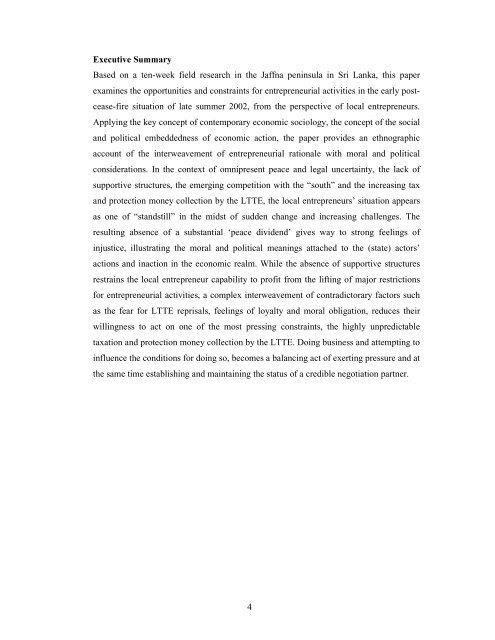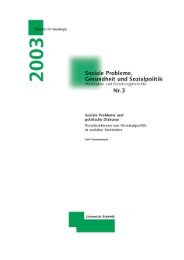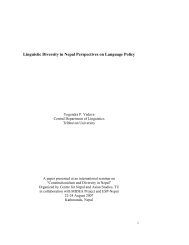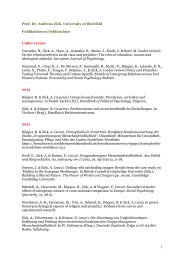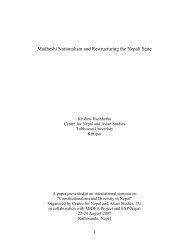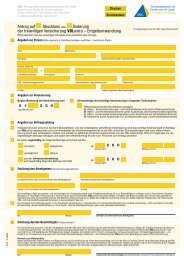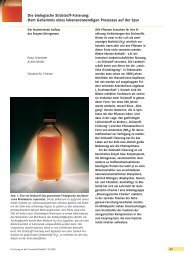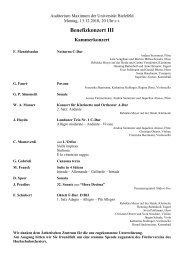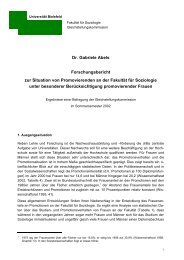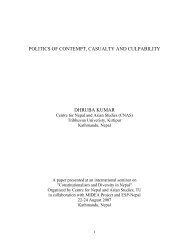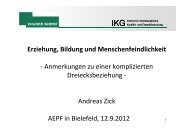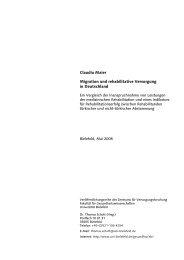Student Research Project Sri Lanka 2002 Supervisors: Prof. Dr ...
Student Research Project Sri Lanka 2002 Supervisors: Prof. Dr ...
Student Research Project Sri Lanka 2002 Supervisors: Prof. Dr ...
You also want an ePaper? Increase the reach of your titles
YUMPU automatically turns print PDFs into web optimized ePapers that Google loves.
([HFXWLYH 6XPPDU\<br />
Based on a ten-week field research in the Jaffna peninsula in <strong>Sri</strong> <strong>Lanka</strong>, this paper<br />
examines the opportunities and constraints for entrepreneurial activities in the early post-<br />
cease-fire situation of late summer <strong>2002</strong>, from the perspective of local entrepreneurs.<br />
Applying the key concept of contemporary economic sociology, the concept of the social<br />
and political embeddedness of economic action, the paper provides an ethnographic<br />
account of the interweavement of entrepreneurial rationale with moral and political<br />
considerations. In the context of omnipresent peace and legal uncertainty, the lack of<br />
supportive structures, the emerging competition with the “south” and the increasing tax<br />
and protection money collection by the LTTE, the local entrepreneurs’ situation appears<br />
as one of “standstill” in the midst of sudden change and increasing challenges. The<br />
resulting absence of a substantial ‘peace dividend’ gives way to strong feelings of<br />
injustice, illustrating the moral and political meanings attached to the (state) actors’<br />
actions and inaction in the economic realm. While the absence of supportive structures<br />
restrains the local entrepreneur capability to profit from the lifting of major restrictions<br />
for entrepreneurial activities, a complex interweavement of contradictorary factors such<br />
as the fear for LTTE reprisals, feelings of loyalty and moral obligation, reduces their<br />
willingness to act on one of the most pressing constraints, the highly unpredictable<br />
taxation and protection money collection by the LTTE. Doing business and attempting to<br />
influence the conditions for doing so, becomes a balancing act of exerting pressure and at<br />
the same time establishing and maintaining the status of a credible negotiation partner.<br />
4


